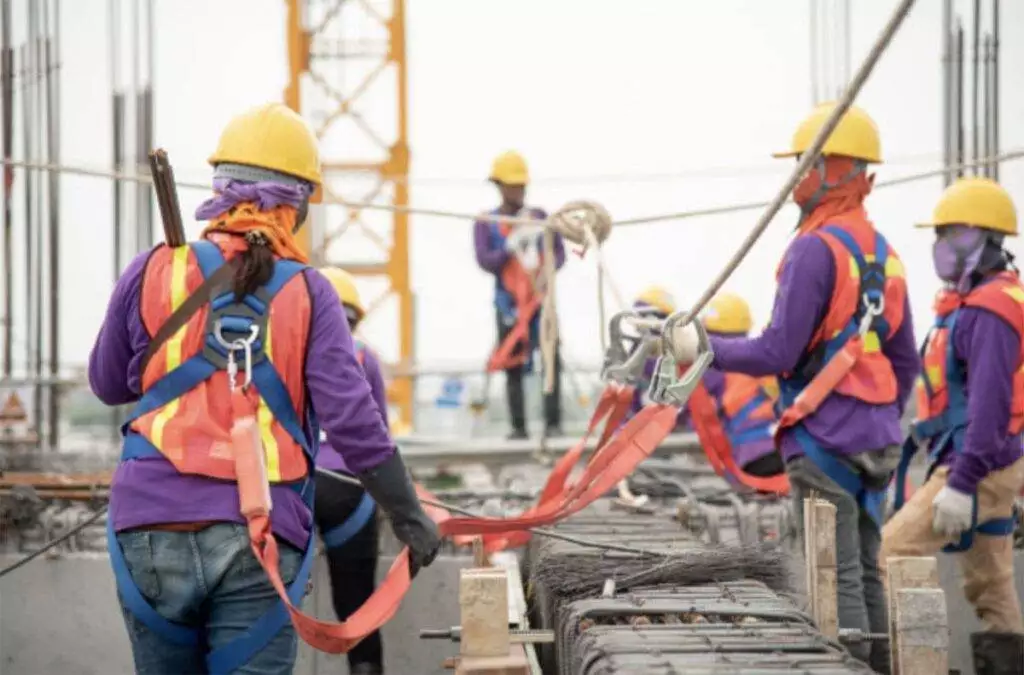Determining labor costs for construction projects in the Philippines requires a thorough understanding of various factors such as the skill levels of workers, project location, and complexity of the project’s design.
Labor costs can vary based on the skill and role of the worker, while the project location greatly influences the rates of their wages. For example, areas that have a low demand for labor tend to have lower wages when you compare it to areas that have a high demand for labor due to the difference in the cost of living. In addition, the complexity of the project’s design also impacts labor costs because the more intricate the design of a project is, the more skilled workers are needed in the said project which leads to an increase in labor costs.
Below, you’ll find information on how to calculate labor costs and the factors that can affect expenses in such projects.
How to Calculate Labor Cost
To calculate the labor cost of a construction project, you should start by estimating the total number of labor hours that are required to complete the project. Then, determine the labor rates for different types of workers needed for the project. In the Philippines, construction workers typically work 8-hour shifts, 5 times a week, with a total of 40 hours per week for each worker. Workers are paid an average hourly rate of ₱50.00 to ₱100.00, resulting in weekly wages of ₱2,000.00 to ₱4,000.00 per worker. Multiply the number of weeks needed for the project by the weekly salary per worker to calculate the labor cost.
According to studies, labor costs should ideally range between 20% to 40% of the total budget for a construction project. However, this figure is based only on the standard industry methodologies which means that the labor cost could vary for each project. In addition, factors such as the cost of materials, the scope of your project, and the different types of labor that are needed to complete the project can significantly influence the project’s total cost.
Labor Price List in Construction
The construction labor costs vary based on the worker’s position. On average, the hourly wage of the lowest positioned construction worker, the laborer ranges from ₱53.00 to ₱68.00 per hour while the foreman who is considered to be the highest position in the construction site, earns around ₱100.00 per hour.
| Position | Rate per Hour |
| Foreman | ₱100.00 |
| Electrician | ₱90.00 |
| Plumber | ₱90.00 |
| Operator | ₱80.00 |
| Skilled Laborer | ₱68.00 |
| Light-skilled laborer | ₱64.00 |
| Unskilled laborer | ₱53.00 |

Factors Influencing Home Building Expenses in the Philippines
Location and Accessibility
The location of the land you wish to purchase significantly influences its price, with rural and urban areas exhibiting fluctuating costs. Moreover, construction expenses vary between these locations due to factors like building regulations, construction site accessibility, labor costs, and material costs with rural areas being a whole lot cheaper than urban areas.
Size and Complexity
The size and complexity of a building significantly impact its construction cost, especially when intricate designs are involved. A more complex architectural design would require special materials and skilled workers, driving up the overall cost. Similarly, a larger home would require more materials and labor, also impacting the project’s overall costs.
Choice of Materials
The cost of a construction project can vary depending on the type of materials that you choose. High-quality materials typically have a higher initial cost compared to standard materials, which can impact the overall project cost. However, opting for high-quality materials can help reduce maintenance expenses in the long run, making it a more cost-effective choice over time. Certain projects that would need imported materials can be more costly due to tariffs and transportation expenses.
Labor Costs and Availability
The labor costs of a construction project can vary depending on the worker’s skill level, demand, and the location of the project. Skilled workers who can efficiently and quickly do their tasks have higher wages, especially in places that have high demands for construction workers. The availability of workers greatly influences their wages, with remote areas potentially facing shortages of workers and higher wages due to a limited workforce.
Permits, Licenses, and Taxes
All building construction projects will require you to comply with the local building codes, obtain permits and licenses, and pay taxes. These are unavoidable expenses in construction projects, and any delays or failure in acquiring these requirements can lead to additional costs due to project delays and fines for non-compliance.
Inflation and Currency Fluctuations
Economic conditions, including inflation and currency fluctuations, significantly impact the overall cost of any construction project. Fluctuations in inflation rates and currency values can greatly impact the cost of the project’s materials, equipment, and workers’ wages. Inflation can result in increased prices for materials and services over time, while the fluctuation of currencies affects the cost of imported materials and equipment that some projects may also need.
FAQs
What factors influence labor costs in the Philippine construction industry?
Labor costs in the Philippine construction industry are influenced by various factors, including the workers’ wages, availability of skilled labor, project location and complexity, government regulations, economic conditions, and the cost of living.
How do the wage rates vary across different regions of the Philippines?
The wage rate in the Philippines differs depending on the project’s location, with urban areas having significantly higher wages when you compare it to rural or provincial areas. For example, areas like Metro Manila typically have higher wage rates due to higher living costs and demand for skilled labor.
How much is construction cost per square meter in the Philippines?
The average cost of constructing a house in the Philippines typically ranges from ₱8,000.00 to ₱30,000.00, depending on factors such as location and house design.
What are some strategies for optimizing labor efficiency on construction projects?
Strategies for optimizing labor efficiency on construction projects include proper planning and scheduling, effective communication, providing adequate resources to workers, and maintaining a safe and conducive work environment.
What is the percentage of labor cost?
For most construction projects, labor costs should ideally range between 20% to 40%.
How much is labor cost per day?
In the Philippines, labor costs can vary depending on the construction project’s location and the skills of the workers. On average, the cost of a single worker could range from ₱500.00 to ₱800.00.

